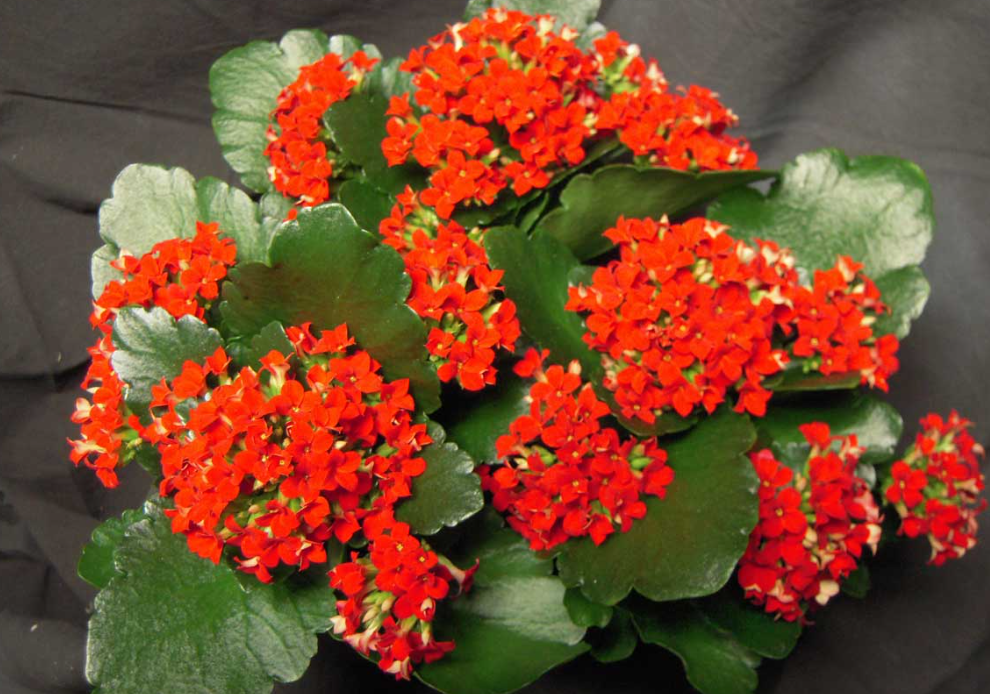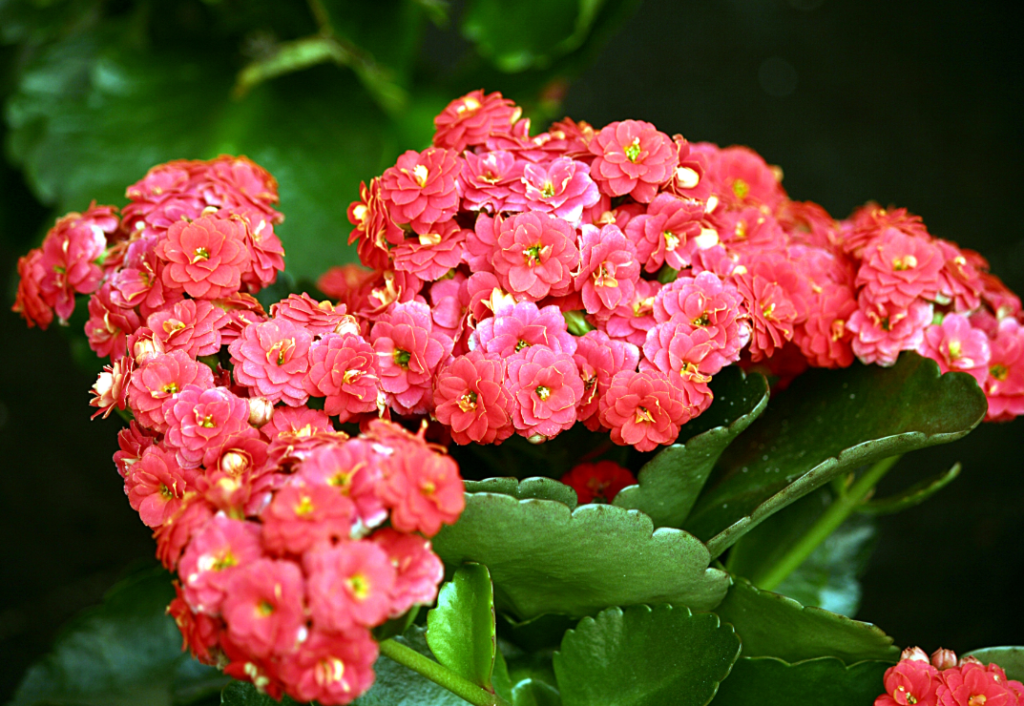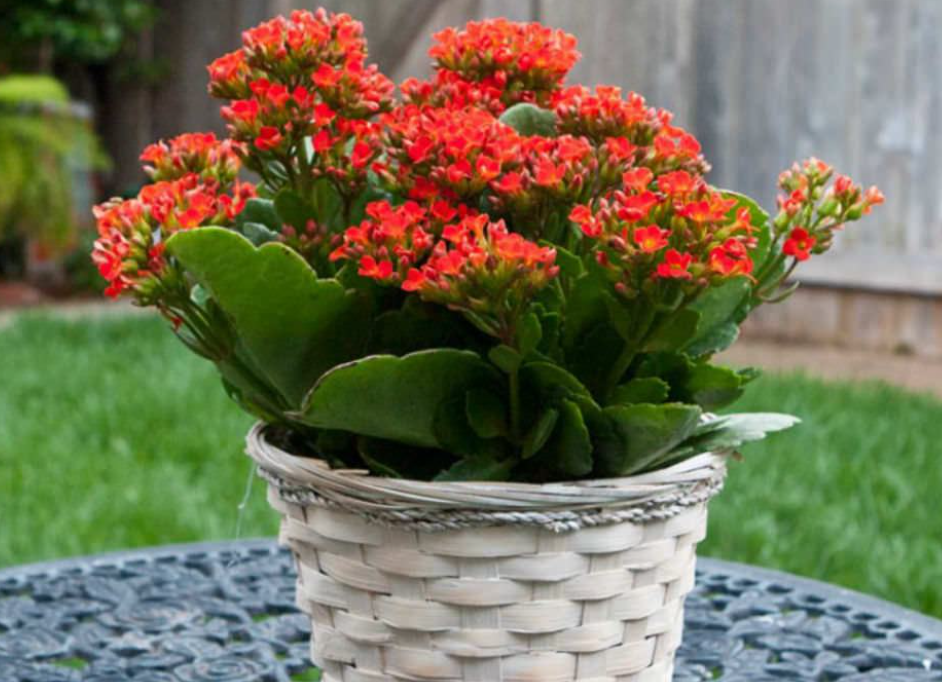
Is Kalanchoe Poisonous to Cats? Kalanchoes are very popular indoor plants, often used as decor in living rooms and kitchens. However, they can be poisonous to cats if ingested.
The plant contains bufadienolides and cardenolides that cause gastrointestinal issues in cats. It can also affect their heart.
Kalanchoe is considered toxic to cats when ingested. Here are some points you should know:
- Kalanchoe contains cardiac glycosides that can affect the heart of cats.
- Symptoms of Kalanchoe poisoning in cats include vomiting, diarrhea, lethargy, and loss of appetite.
- In severe cases, Kalanchoe poisoning can cause heart arrhythmias, seizures, and even death in cats.
- If you suspect your cat has ingested Kalanchoe, seek veterinary care immediately.
- To prevent poisoning, keep Kalanchoe and other toxic plants out of reach of cats.
It’s important to ensure the safety of our furry friends by keeping them away from potentially harmful plants
Symptoms
Kalanchoe plants, mother-of-millions plant, devil’s backbone, and chandelier plant contain cardiac glycosides that can be harmful to dogs, cats, birds, livestock, and other animals. These toxins interfere with the normal functioning of the heart.
Dogs and cats that eat Kalanchoe may experience vomiting, diarrhea, loss of appetite, or other symptoms associated with gastrointestinal distress. They may also go into cardiac shock or experience rapid heartbeats if they are not treated right away.
The severity of the symptoms depends on how much Kalanchoe was eaten and if it contains cardiac glycosides. In severe cases, dogs and cats may develop signs of heart arrhythmias, weakness, dyspnea, or anorexia. They may also drool saliva or urine.
Treatment

Pet lovers often have many plants around the house, and some of them can be dangerous for cats if they ingest them. One such plant is Kalanchoe, a popular succulent that can cause severe gastric upset and if eaten in large quantities can result in abnormal heart rhythms and seizures.
The toxins in this plant (bufadienolides) usually cause gastrointestinal issues, such as vomiting and diarrhea, but rarer, cats may experience more serious symptoms, including heart arrhythmias and collapse.
If your cat eats kalanchoe, they should be taken to the vet immediately. The vet can induce vomiting and use activated charcoal to make sure that all the toxins are out of the cat’s system.
Generally, if your cat has a mild case of kalanchoe poisoning, they will recover within 12-24 hours. If they have a more serious case of poisoning, the recovery period will be longer. Your vet will likely prescribe fluids, monitoring and treatment to help your cat get well again.
Prevention
Kalanchoes are popular houseplants that are easy to care for. They come in a variety of colors and can brighten up any room.
However, they can be poisonous to cats. If your cat eats Kalanchoe, it may show symptoms of gastrointestinal irritation, vomiting, and diarrhea. It can also develop abnormal heart rhythms and liver damage.
In severe cases, a cat can die from kalanchoe toxicity. If your cat has ingested this plant, your vet will likely induce vomiting and give her activated charcoal to help prevent further absorption of the toxins.
The best prevention for kalanchoe toxicity is to keep your plants out of reach of your cat and offer her lots of toys and activities that keep her entertained. Keeping your home tidy can also help, as it will be less tempting for your cat to nibble on plants.
Precautions

If you have a cat and are growing plants in your home, you should be careful with the types of plants you place around. Some of them are poisonous to cats, and others cause severe toxicity that can be fatal.
Kalanchoe, also known as Mother of Thousands and Devil’s Backbone, is one of these plants. Its flowers contain bufadienolides, which are toxic to cats and dogs.
This plant is also toxic to rabbits, guinea pigs, and horses. If ingested, the animals will experience vomiting and diarrhea.
The plant is a favorite of succulent enthusiasts, but it can be dangerous to pets. It produces saponins that irritate your pet’s mouth, throat, and stomach.
If you notice your cat chewing on a piece of Kalanchoe, take it to a veterinarian immediately. They will examine your cat and give you medications to control vomiting and relieve abdominal pain. They may also order blood tests to identify the plant if you aren’t sure what it is.

